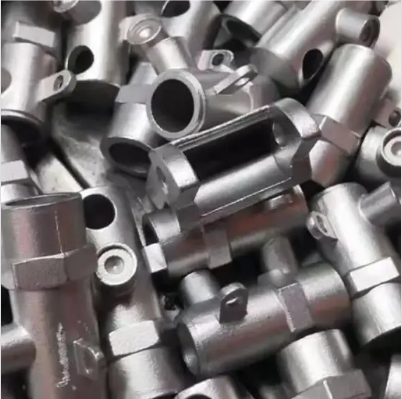Mobile:+86-311-808-126-83
Email:info@ydcastings.com
Innovative Solutions for Your Metal Casting Needs from a Reliable Manufacturing Partner
Exploring the World of Metal Casting Companies
Metal casting is a fundamental manufacturing process that dates back thousands of years. As an essential method for producing complex metal parts, it remains a cornerstone of various industries, including automotive, aerospace, and electronics. Metal casting companies play a crucial role in this process, providing innovative solutions for engineering challenges and meeting the demands of a global market.
At its core, metal casting involves pouring molten metal into a mold, allowing it to cool and solidify into a desired shape. The diversity of casting techniques—such as sand casting, investment casting, and die casting—enables metal casting companies to cater to a wide range of applications. Each method has distinct advantages, depending on factors like the type of metal, the complexity of the part, and the production volume.
Exploring the World of Metal Casting Companies
Metal casting companies are equipped with advanced technologies and modern equipment that enhance the efficiency and quality of the casting process. Automated systems for mold-making, pouring, and cooling reduce production time while minimizing human error. Furthermore, innovations in materials science have led to the development of new alloys and metal formulations that enhance the properties of the final products, such as strength, corrosion resistance, and thermal stability.
metal casting company

Quality control is paramount in the metal casting industry. Companies employ rigorous testing and inspection methods throughout the manufacturing process—ranging from computer simulations during the design phase to non-destructive testing after casting. This ensures that the finished products meet strict industry standards and customer specifications.
In recent years, sustainability has become a focal point for metal casting companies. Many are adopting eco-friendly practices, such as using recycled materials in production and reducing energy consumption during melting and casting processes. The move towards sustainable manufacturing not only benefits the environment but also enhances the company’s reputation and bottom line.
Moreover, the rise of additive manufacturing and 3D printing technologies has started to influence the metal casting industry. Some casting companies are integrating these technologies to produce molds or cores more efficiently. 3D printing can significantly shorten lead times and reduce material waste, providing companies with a competitive edge.
Collaboration is another trend shaping the future of metal casting. Companies are increasingly partnering with clients in the design phase to optimize parts for the casting process. This partnership allows for more efficient production methods, lower costs, and higher quality outcomes. By understanding the specific needs and challenges of their customers, metal casting companies can offer tailored solutions that enhance overall productivity.
In conclusion, metal casting companies are vital players in the manufacturing landscape, adapting to new technologies, focusing on sustainability, and emphasizing quality control. As industries continue to evolve, these companies will remain at the forefront, driving innovation and contributing to the production of high-performance metal components that meet the demands of modern engineering. The future of metal casting is bright, with endless opportunities for growth and development across various sectors.
-
Why Should You Invest in Superior Pump Castings for Your Equipment?NewsJun.09,2025
-
Unlock Performance Potential with Stainless Impellers and Aluminum End CapsNewsJun.09,2025
-
Revolutionize Your Machinery with Superior Cast Iron and Aluminum ComponentsNewsJun.09,2025
-
Revolutionize Fluid Dynamics with Premium Pump ComponentsNewsJun.09,2025
-
Optimizing Industrial Systems with Essential Valve ComponentsNewsJun.09,2025
-
Elevate Grid Efficiency with High-Precision Power CastingsNewsJun.09,2025











